-
Issues That Can Cause Tooth Pain
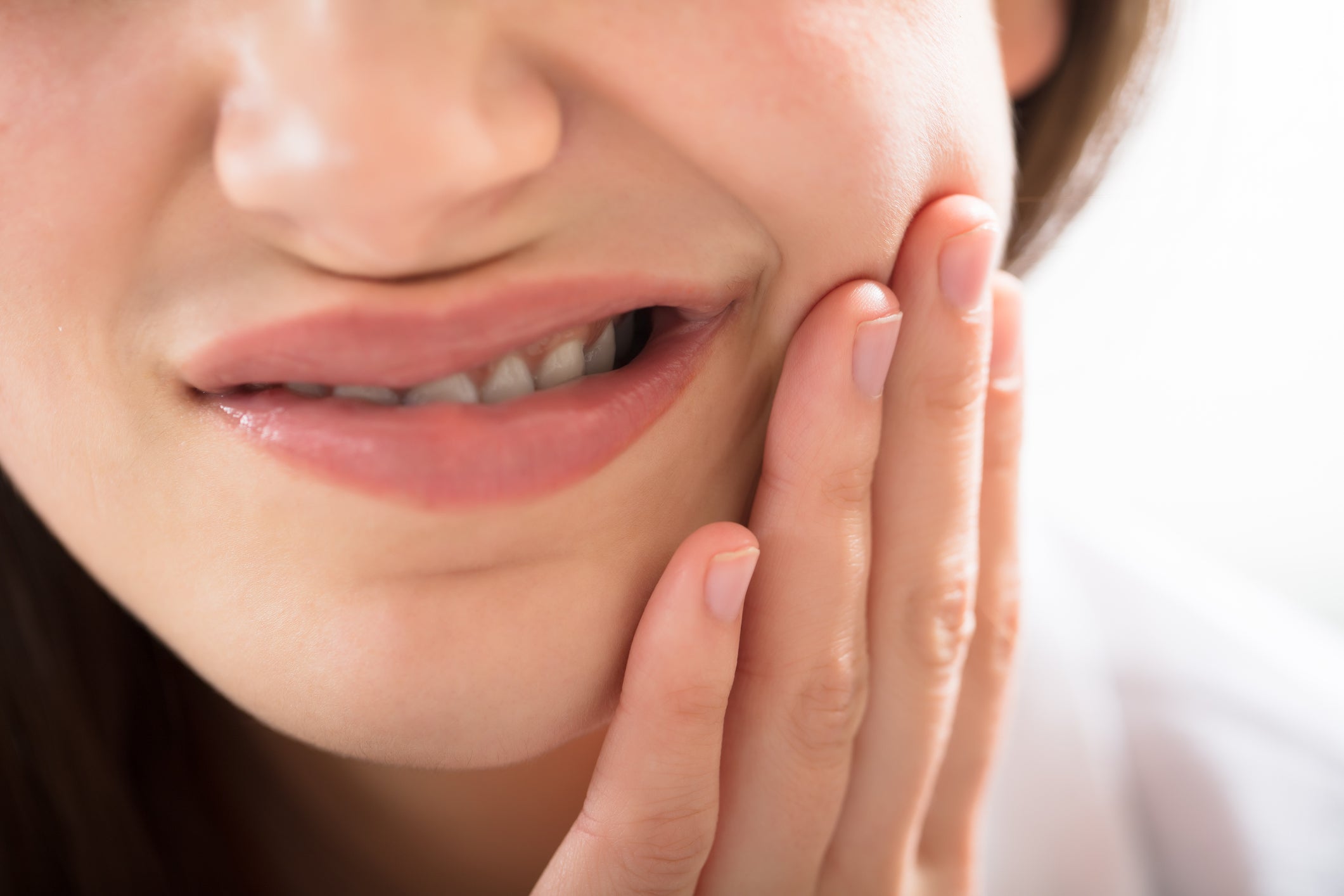
Does your tooth hurt? You’re not alone. Millions of people suffer from tooth pain every year, and it can be a challenge to figure out the cause. Park 56 Dental in New York is here to help you sort through the possibilities. Let’s examine some of the common issues that can cause tooth pain.
Tooth Decay
One of the most common causes of toothache is decay or cavities in the teeth. When food particles remain on the teeth, they are broken down by bacteria which produce acids that erode away at tooth enamel. This eroding action causes holes in the teeth (cavities) which can be quite painful when exposed to hot or cold temperatures or when pressure is applied to them. Visiting your dentist regularly for checkups and cleanings can help prevent this type of pain by catching any cavities early and treating them before they become too severe.
Gum Disease
Gum disease occurs when poor oral hygiene allows bacteria to build up on your teeth and gums, leading to inflammation and infection in the area around your teeth. Gum disease can lead to receding gums, loose teeth, bad breath, and even tooth loss if left untreated — not to mention plenty of painful symptoms! A good preventive measure for avoiding gum disease is to brush two times a day for two minutes each time, flossing once per day as well as seeing your dentist regularly for checkups and cleanings.
Infection
A dental infection occurs when bacteria enter an area inside or around a tooth where it doesn’t belong – such as an abscessed tooth/root canal or wisdom teeth coming through improperly – leading to swelling and pain. If an infection has reached this point, it will likely require professional treatment by a dentist such as antibiotics or even extraction in some cases. Regular visits with your dentist will help keep infections at bay by identifying any potential issues early on before they have a chance to escalate into something more serious requiring more intervention from your dental team.
How to Avoid Tooth Pain
One of the worst sensations is tooth pain; it’s sharp, agonizing, and often comes out of nowhere. Most tooth pain is caused by tooth decay or an abscessed tooth, but there are several steps people can take to help avoid toothaches. Brushing twice daily for two minutes, as well as flossing every day can help ensure that food does not get stuck in between teeth and cause issues. Additionally, remember to use toothpaste with fluoride; this helps protect the enamel on our teeth, which is the protective outer coating to the tooth. Also, be sure to rinse the mouth after meals, and stay away from sugary drinks and snacks. Too much sugar can erode tooth enamel over time. Taking these simple steps can help you prevent tooth pain in the long run.
Visit Park 56 Dental Today!
No one likes dealing with tooth pain, but unfortunately, it’s something that many people experience at some point in their lives. At Park 56 Dental in New York, we understand how difficult it can be when trying to identify what might be causing the discomfort. Contact us today to schedule an appointment or book online!
-
Simple Ways to Motivate You to Floss Every Day
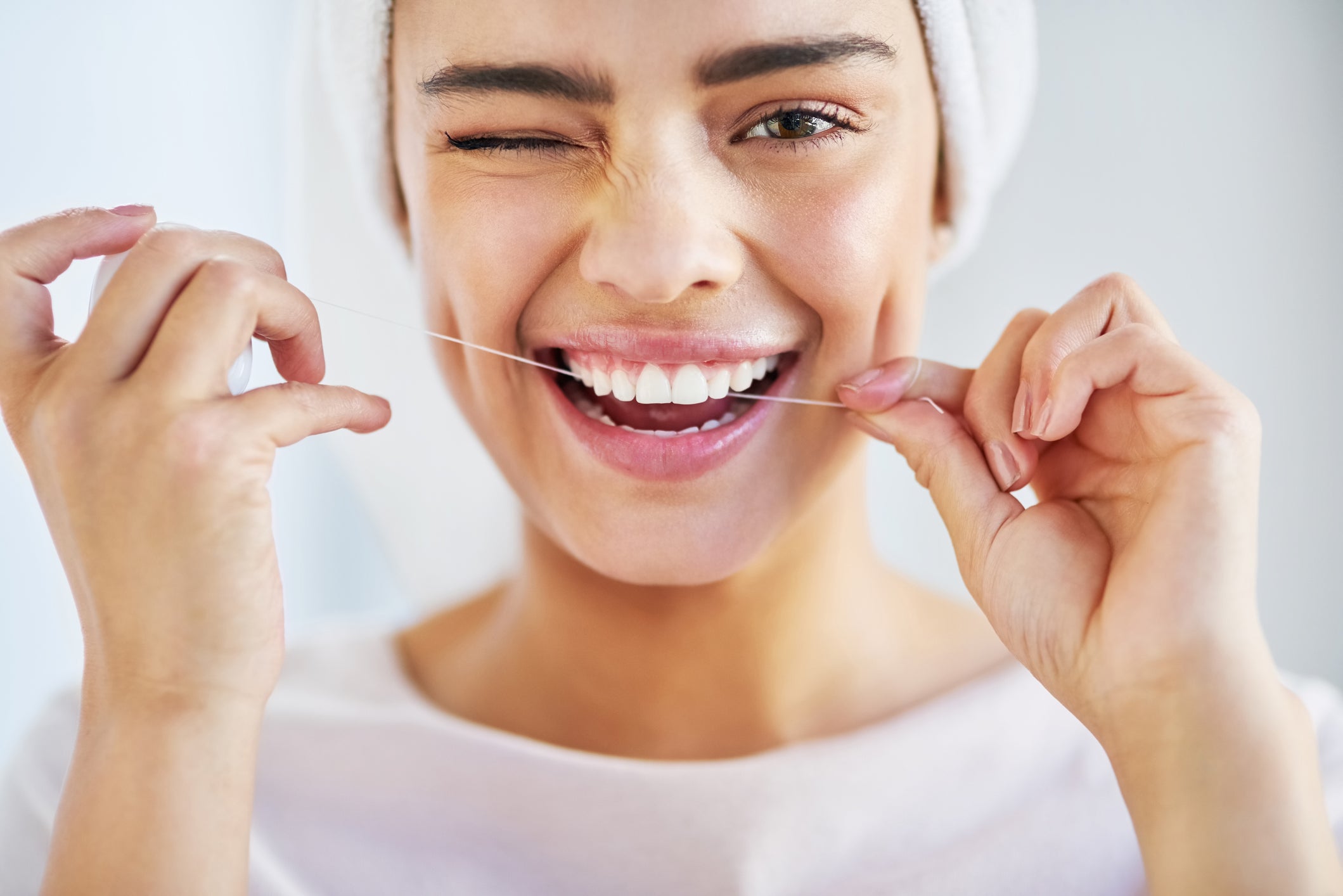
Good oral hygiene is important for a healthy mouth, and one of the most effective ways to achieve it? That’s right—flossing! Flossing is one of the most important habits you can adopt to maintain good oral health. According to research, only 4 out of 10 adults floss daily and only 1 in 3 actually flosses correctly. Daily flossing helps prevent cavities, gum disease, and bad breath. But sometimes it’s hard to remember to do it every day. So here are some simple motivators that might help you get into the habit of regular flossing.
Find a Flossing Product That Works for You
The type of floss you use matters! Many people don’t realize that different types of floss work differently for different types of teeth and mouth needs. Waxed, non-waxed, disposable floss sticks, electric or water flossers—there are so many options available! If one type of product isn’t working well with your teeth and gums, try another! Experiment with different products until you find the perfect one for your personal oral hygiene routine.
Keep Your Floss in Sight
If you have your dental floss handy, you are more likely to remember to use it every day! Try keeping an extra package at the office or even in your pocket or purse wherever you go. You should also keep a container on the sink or bathroom countertop as a constant reminder that it’s time to floss every day!
Set A Goal
One of the best ways to make sure you stick with something is to set a goal. Make a goal that you can realistically achieve, like “I will floss at least twice a week for the next month.” Once you reach that goal, reward yourself by doing something special or purchasing something nice! This will help motivate you to keep going and eventually make daily flossing part of your routine.
Create A Chart
If setting goals isn’t quite your thing, another way to motivate yourself is by creating a chart or calendar that tracks your progress. Every day after you floss, mark it off in your chart or on your calendar as a reminder that you achieved your goal for the day. Seeing this progress can give you an added boost of motivation and encouragement!
Use A Reminder App
If neither of these methods seem like they’d work for you, consider downloading a reminder app onto your phone or laptop. With this type of app, all you have to do is set the time when you want it to remind you each day–it could be right before bedtime, so it becomes part of your nighttime routine–and then just follow through with the action when the reminder goes off!
Get Flossing!
Flossing every day is an important part of maintaining good oral hygiene and overall health. And while remembering to do it can be difficult at times, there are several easy strategies available that can help motivate and remind us so that we don’t forget! Whether it’s setting goals and rewarding yourself for reaching them, using visuals like charts and calendars, or using apps on our phones for reminders—these simple strategies can help ensure we stick with our daily flossing routine.
If any questions remain about flossing or other dental-related topics such as teeth whitening services offered at Park 56 Dental in New York City, please contact us today!
-
Everything You Need to Know About Canker Sores
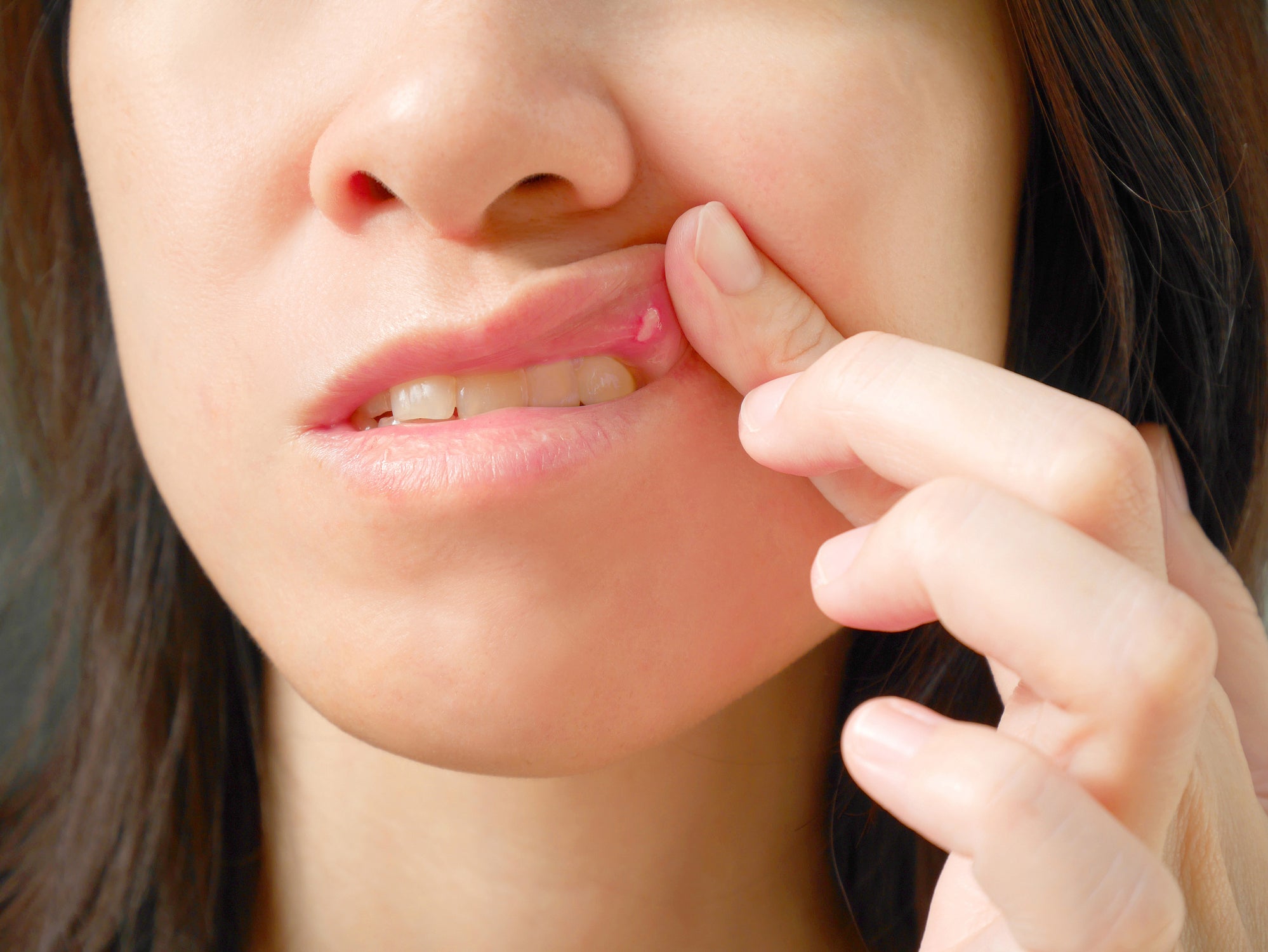
Canker sores are small ulcers that form inside the mouth. They can be very painful and make it difficult to eat or drink. Most canker sores heal on their own within 1-2 weeks. However, there are some things you can do to help relieve the pain and speed up the healing process. In this blog post, we will discuss everything you need to know about canker sores.
What Causes Canker Sores?
The exact cause of canker sores is unknown. However, there are several things that may contribute to their formation, including:
- Stress
- Hormonal changes (e.g., during puberty or menopause)
- Nutritional deficiencies (e.g., iron, vitamin B12, or folic acid)
- Trauma to the mouth (e.g., from toothpaste that is too abrasive or braces that rub against the inside of the mouth)
- Use of certain medications (e.g., blood thinners or drugs that contain sulfur)
- Infections (e.g., viral infections such as herpes simplex virus type 1 or bacterial infections such as strep throat)
How Are Canker Sores Treated?
Most canker sores heal on their own within 1-2 weeks. However, there are some things you can do to help relieve the pain and speed up the healing process. These include:
- Eating soft foods and avoiding spicy, acidic, or crunchy foods that might irritate the sore
- Rinsing your mouth with a saltwater solution
- Applying a topical numbing agent
- Taking over-the-counter pain relievers such as ibuprofen or acetaminophen
- Applying a topical steroid cream
- Undergoing laser treatment (this is usually done by a dentist or doctor)
How Can Canker Sores Be Prevented?
Canker sores are most common in teens and young adults, and can be caused by stress, hormonal changes, or a lack of certain nutrients. While canker sores are not contagious, they can be difficult to get rid of once they form. However, there are some things that can be done to prevent canker sores from forming in the first place:
- Reducing stress through relaxation techniques such as yoga or meditation
- Avoiding foods that you know trigger canker sores
- Practicing good oral hygiene by brushing your teeth twice a day and flossing daily
- Using a soft toothbrush and toothpaste without fluoride
- Wearing mouthguards when playing sports
If you experience frequent or severe canker sores, you should see a dentist or doctor to rule out any underlying medical conditions.
Contact Park 56 Dental Today for Canker Sores Treatment and Advice
If you’re dealing with canker sores, Park 56 Dental can help. We can provide you with tips on how to prevent canker sores from forming in the first place, and we can also provide you with treatment options if you do develop one. Don’t suffer in silence–contact Park 56 Dental today. We’ll be happy to help you get your mouth back to feeling healthy and comfortable again.
-
How to Avoid Wisdom Teeth Infections
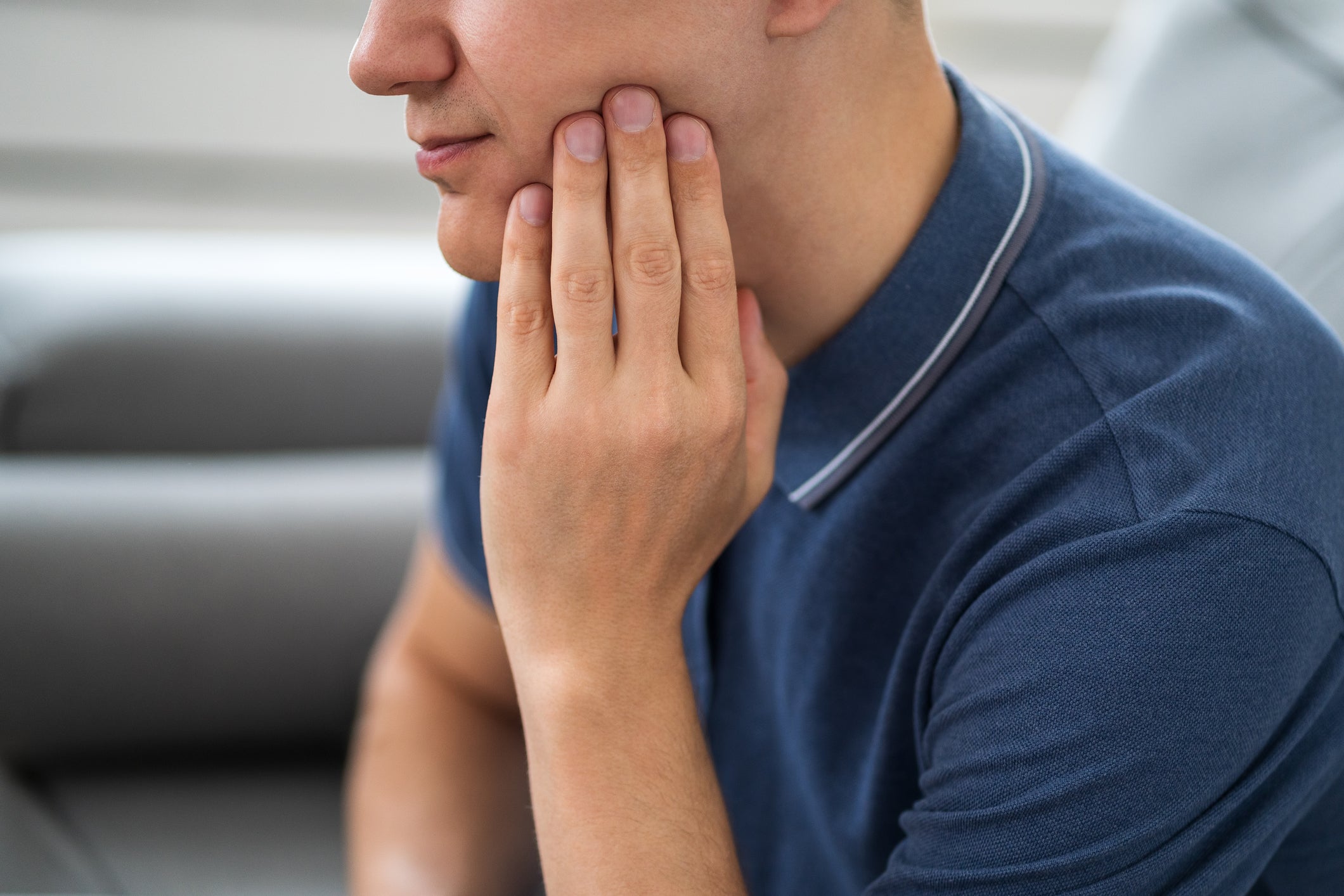
Many people experience wisdom teeth infections at some point in their lives. While wisdom teeth are not necessary, they can cause problems if they do not come in properly. If your wisdom teeth are impacted or crowded, they may be more likely to develop an infection. Fortunately, there are ways to avoid wisdom teeth infection. In this blog post, we will discuss the symptoms, risks, causes, and treatment of wisdom teeth infections as well as how to avoid them.
What Are the Symptoms of a Wisdom Tooth Infection?
Wisdom tooth infections can cause several different symptoms. These symptoms may include pain, swelling, redness, and difficulty opening your mouth. You may also experience bad breath, a foul taste in your mouth, and a fever. If you experience any of these symptoms, you should see a doctor as soon as possible.
What Are the Risks of a Wisdom Tooth Infection?
Wisdom tooth infections can lead to several complications if they are not treated properly. These complications may include damage to the surrounding teeth, jawbone loss, and tissue death. If the infection spreads to other parts of the body, it can potentially be fatal. Therefore, it is very important to see a doctor if you think you may have an infection.
What Causes Wisdom Teeth Infection?
There are several things that can contribute to wisdom teeth infection. Impacted or crowded teeth are more likely to develop an infection because they are difficult to clean properly. If you have diabetes or a weakened immune system, you may also be more susceptible to developing an infection.
How to Treat an Infection
If you think you may have a wisdom tooth infection, it is important to see a doctor as soon as possible so that you can begin treatment. The most common treatment for wisdom tooth infection is antibiotic therapy. Antibiotics can help kill the bacteria that are causing the infection and reduce inflammation. Sometimes surgery is necessary to remove the infected tooth or drain the abscess that has formed.
How to Avoid an Infection
The best way to avoid wisdom tooth infection is to practice good oral hygiene and visit your dentist regularly. Brush and floss your teeth twice a day and try to avoid eating sugary or sticky foods that can get stuck in your teeth. If your wisdom teeth are impacted or crowded, your dentist may recommend having them removed before they have a chance to become infected.
When Should I See a Doctor?
If you think you may have a wisdom tooth infection, it is important that you see a doctor right away so that your condition does not worsen. Your doctor will likely perform a physical examination and take x-rays of your mouth to make a diagnosis. He or she will then determine what course of treatment is best for you based on the severity of your condition.
Contact Park 56 Dental Today!
Wisdom teeth infections can be painful and dangerous if left untreated. It is important to practice good oral hygiene and see your dentist regularly in order prevent them. Be sure see your doctor right away if any of the following symptoms: pain, swelling, redness, difficulty opening your mouth, bad breath, foul taste in mouth, or fever. These could be signs of an underlying problem requiring immediate medical attention.
If you are experiencing any of the symptoms mentioned in this blog post, please contact Park 56 Dental as soon as possible. We can help you get the treatment you need to avoid an infection and keep your smile healthy and beautiful.
-
The Relationship Between Oral Health and Acne

Have you ever wondered if your teeth and gums could be plotting against your skin? Surprisingly, your oral hygiene is more connected to those pesky pimples than you might expect. Explore how keeping your mouth healthy can benefit your complexion.
Continue reading “The Relationship Between Oral Health and Acne”
-
Tips on How to Save Money on Your Oral Health
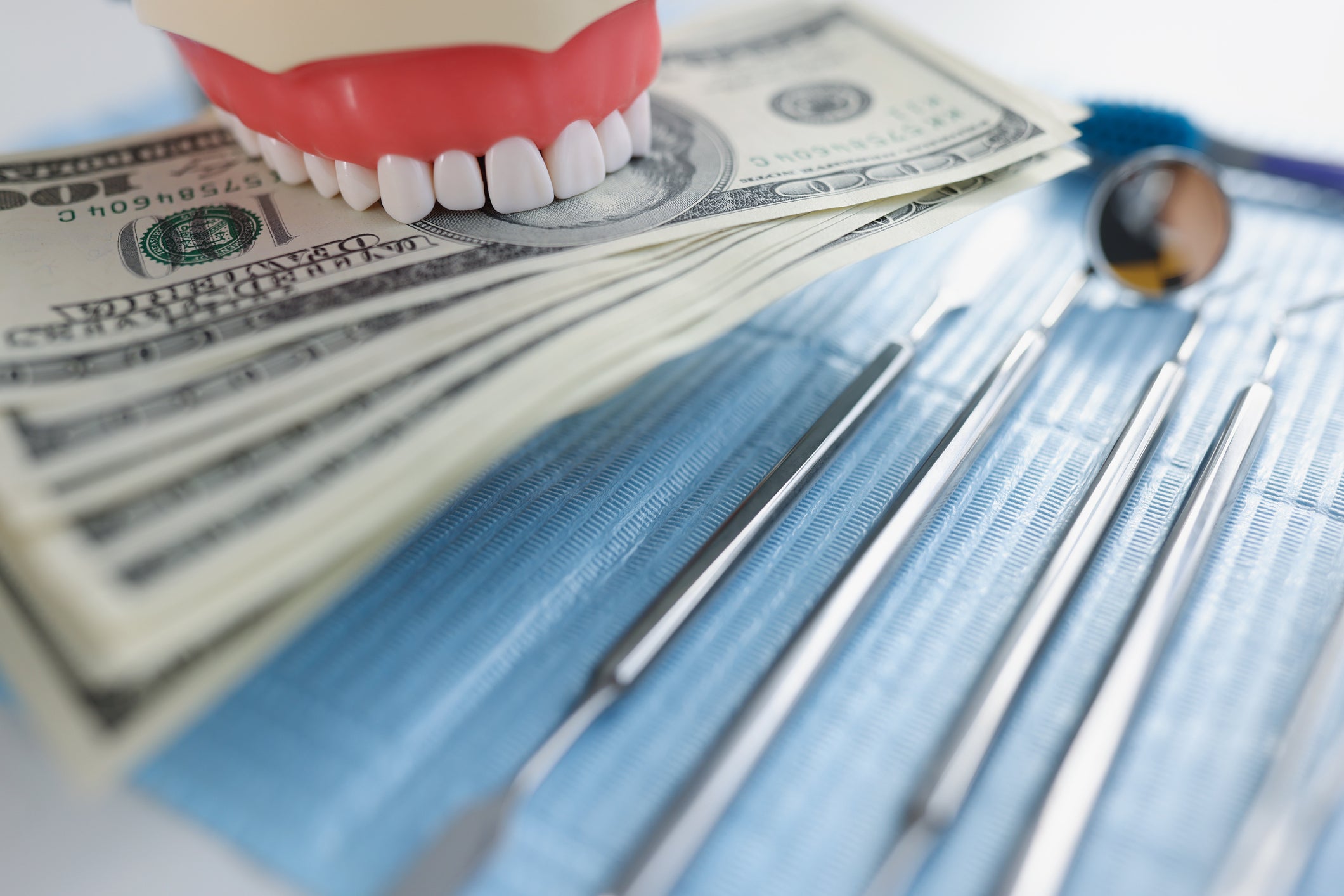
When it comes to saving money, few people think about their oral health care routine. However, there are several ways that you can save money on your oral health care without skimping on the quality of products that you receive. Here are a few tips to get you started.
Buy Products at Larger Supermarkets for Lower Prices
You can find good quality oral health products at your local supermarket for a fraction of the price you would pay at smaller stores. Look for brands that you trust and be sure to read the labels to make sure you are getting what you need.
Buy products from your dentist.
Sometimes it is worth it to buy directly from your dentist because they will be able to tell you exactly what you need so you don’t waste money on things you don’t. Dentists often have special deals or package pricing that can save you money in the long run.
Look at Your Local Pharmacy
Pharmacies stock oral health products and often have discounts and multibuys available. Many people don’t realize that pharmacies carry a wide variety of oral health products, and they are often very reasonably priced. Be sure to check the sale flyer before you shop so you know what deals are available.
Don’t Forget About Discount Stores
Discount shops such as dollar stores or discount department stores often have good deals on oral health products as well. Be sure to check the expiration date before you buy to make sure you are getting a good deal.
Practice Prevention
Preventive dentistry saves you time, money, and aggravation in the long run. Tips to avoid expensive dental treatments include brushing twice daily, flossing once daily, using mouthwash, and visiting your dentist regularly for cleanings and checkups.
Consider Your Diet to Safeguard Your Teeth
Eating sugary and acidic foods can damage your teeth over time and lead to cavities and other problems. Limiting these foods in your diet can help keep your teeth healthy and prevent costly dental treatment down the road.
Use Dental Insurance If You Have It
If you have dental insurance, be sure to use it! Most insurance plans will cover at least a portion of the cost of preventive care, such as teeth cleanings and X-rays. Regular preventive care can help you avoid more expensive dental problems down the road.
Look Into Dental Payment Plans When Needed
If you need dental work that is not covered by insurance, or if you don’t have insurance, ask your dentist about payment plans. Many dentists offer financing options that can make dental care more affordable.
Learn About the Child Dental Benefits Schedule
The Child Dental Benefits Schedule (CDBS) is a government-funded program that provides free or low-cost dental care for eligible children aged 2-17 years old. If you have kids, see if they qualify for the CDBS.
Why Choose Park 56 Dental in New York?
The team at Park 56 Dental is proud to offer our patients high quality, affordable dental care in New York in a comfortable and convenient setting. Our experienced staff is devoted to providing each patient with individualized attention and care. Contact us today to schedule an appointment! We look forward to meeting you soon!
-
Why it’s important to seek an Invisalign provider
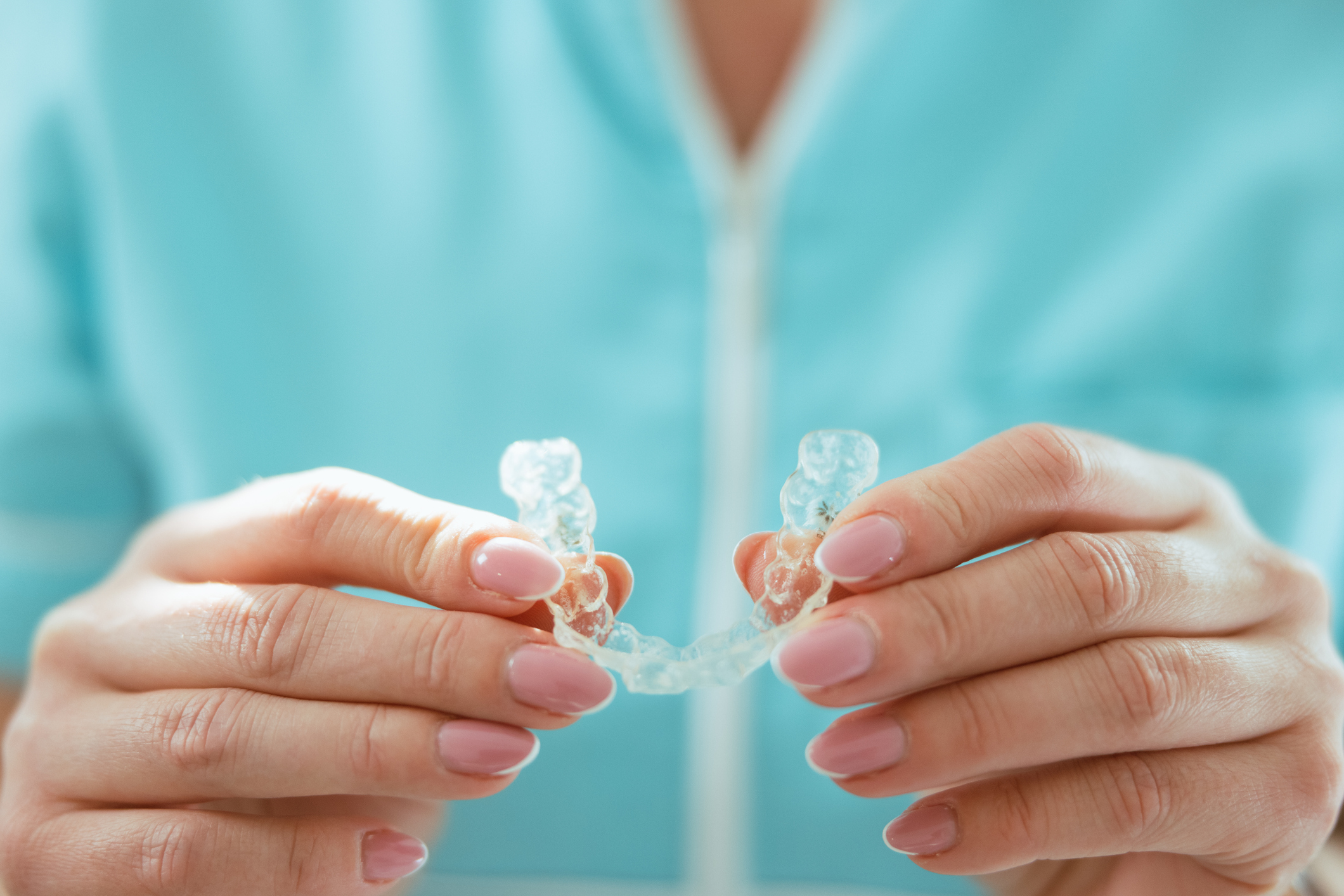
When Invisalign aligners came on the scene, they were a revolutionary idea. Suddenly, people could get beautiful, straight teeth without the hassle of traditional wire braces. Instead, using a series of nearly invisible, removable, comfortable, clear aligners, dentists could straighten teeth in less time than people spend in wire braces. Now, various companies have seized upon this idea and are flooding the market with at home straightening kits. Do they work, or is Invisalign still the right choice?
At-home straightening companies send the customer a kit to make a 3-D mold of their own teeth. This mold is submitted to the company, and a series of clear aligners are sent to the customer periodically. The patient never needs to visit the dentist or orthodontist, which allows these companies to charge far less than a patient would pay for Invisalign. In fact, one leading at-home straightening company estimates that their product is about 60 percent cheaper than traditional teeth straightening.
The problem with these at-home straightening kits is the same thing that makes them inexpensive: they allow patients to skip the orthodontist or dentist. Without professional supervision, patients can actually damage their teeth irreparably. This is because straightening teeth often requires adjustments to the plan, and if you are straightening your teeth on your own, there’s no monitoring of your progress and no professional who could make these adjustments.
Additionally, while a dentist is qualified to create a customized straightening plan for you, at-home straighteners are more of a “one-size-fits-all” product. They don’t work for everyone, and there is no way for these companies to consider all the different factors that could affect your progress. When you bypass the guidance of a dental care professional, you run the risk of missing problems with your jaw or the roots of your teeth. Issues that could have been caught by an x-ray before treatment can end up being complications that can affect the results of your straightening attempts. While an at-home straightening program may cost less upfront, it could end up leading to costly problems in the long run.
If you want to straighten your teeth using clear aligners, the best choice is to seek a qualified Invisalign provider. Your dentist or orthodontist will create a 3D image of your teeth and design a treatment plan that’s customized for you. You’ll wear a series of clear aligners that are removable, so that you can continue to eat your favorite foods while your teeth are being straightened. Each set of aligners will need to be worn for about two weeks, and you’ll see your dentist every six weeks so that your treatment can be monitored and adjusted as needed. The average treatment time for Invisalign is between nine and 15 months.
When you’re ready to find out if you’re a good candidate for Invisalign, choose the practice that was voted best dentist in NYC! At Park 56 Dental Group, we offer pediatric, prosthodontics, endodontics, oral surgery, Invisalign®, emergency, and sedation dentistry, all at the highest level of treatment. We serve the Midtown, Central Park, Upper East Side, Park Avenue, and all surrounding Manhattan and New York areas, with a patient-centered practice that has hours to fit your schedule. Schedule your complimentary consultation today by contacting us online or calling us at (212) 826-2322.
-
Foods That are Secretly Ruining Your Teeth

There are certain foods that everyone knows are bad for your teeth, like sticky candy and sugary sodas. Other foods, though, are a little sneakier. In fact, you may be eating a healthy diet and still be damaging your teeth. Don’t worry, if your favorite foods are on this list, you don’t have to give them up forever. Just make sure that you’re aware of the damage they can do, eat them in moderation, and keep up with your oral hygiene and regular dental check-ups.
- It might surprise you to learn that fresh fruit can damage your teeth. It’s a healthy choice for a snack, but some fruit is also high in enamel-eroding acid and cavity-causing sugar. Apples, citrus fruits, and strawberries all fall into this category, but that doesn’t mean you shouldn’t eat them. Just make sure to rinse your mouth with water to help clean the sugars and acid from your teeth.
- Dried fruit is worse than fresh fruit when it comes to oral health. They’re a great source of fiber, but they contain a lot of sugar and they’re sticky enough to cling to your teeth. All that sugar stuck to your teeth creates the perfect environment to welcome bacteria and cause cavities.
- Popcorn is a nearly irresistible snack, but it’s not great for your teeth. First, it’s high in carbs, which turn into sugars and feed bacteria. Then, the kernels and other particles can get stuck in your teeth or lodged in your gums. Popcorn bits between the teeth help bacteria grow, and when you pull kernels from under your gums, they leave gaps where bacteria can invade. If you can’t resist snacking on popcorn, make sure to brush and floss afterwards.
- What you drink can be just as damaging as the things you eat. Diet soda may seem like a good alternative to regular soda, but the acid in the soda can damage your enamel, and the artificial sweeteners promote the growth of bacteria. Fizzy waters with natural flavors are a better option because they don’t have sugar or sweeteners. Wine, coffee, and tea can all stain your teeth, and sports drinks tend to be loaded with sugar. Limit these beverages, and when you do drink them, make sure to follow up with a glass of water to rinse your teeth.
- Watch how you eat nuts. When choosing a nut butter, pick one without added sugars. If you’re eating almonds, choose slivered almonds to reduce the risk of cracking your teeth.
- Pickles can wear down your tooth enamel. Sweet pickles are especially bad for your teeth because of the added sugar, but even dill pickles have acid that’s very damaging. To cut the acidity, enjoy pickles in moderation and rinse your mouth with water after eating them. Eating cheese with your pickles can also help neutralize the acid.
- Beware of bread. Bread may seem harmless enough, but when your saliva breaks down the starch in bread, it converts it to sugar. White bread is the worst, because it sticks to your teeth, so choose whole grain bread for your sandwiches.
- Water is great for your teeth, unless it’s frozen. When you chew on ice, you can chip away your tooth enamel and even break your teeth. Instead of chewing on ice, reach for celery sticks or baby carrots for that satisfying crunch.
No matter what you eat, regular dental appointments are the key to keeping your teeth healthy. When it’s time for a check-up, choose the practice that was voted best dentist in NYC! At Park 56 Dental Group, we offer pediatric, prosthodontics, endodontics, oral surgery, Invisalign®, emergency, and sedation dentistry, all at the highest level of treatment. We serve the Midtown, Central Park, Upper East Side, Park Avenue, and all surrounding Manhattan and New York areas, with a patient-centered practice that has hours to fit your schedule. Schedule your complimentary consultation today by contacting us online or calling us at (212) 826-2322.
-
How to Care for Your Teeth During the Holidays
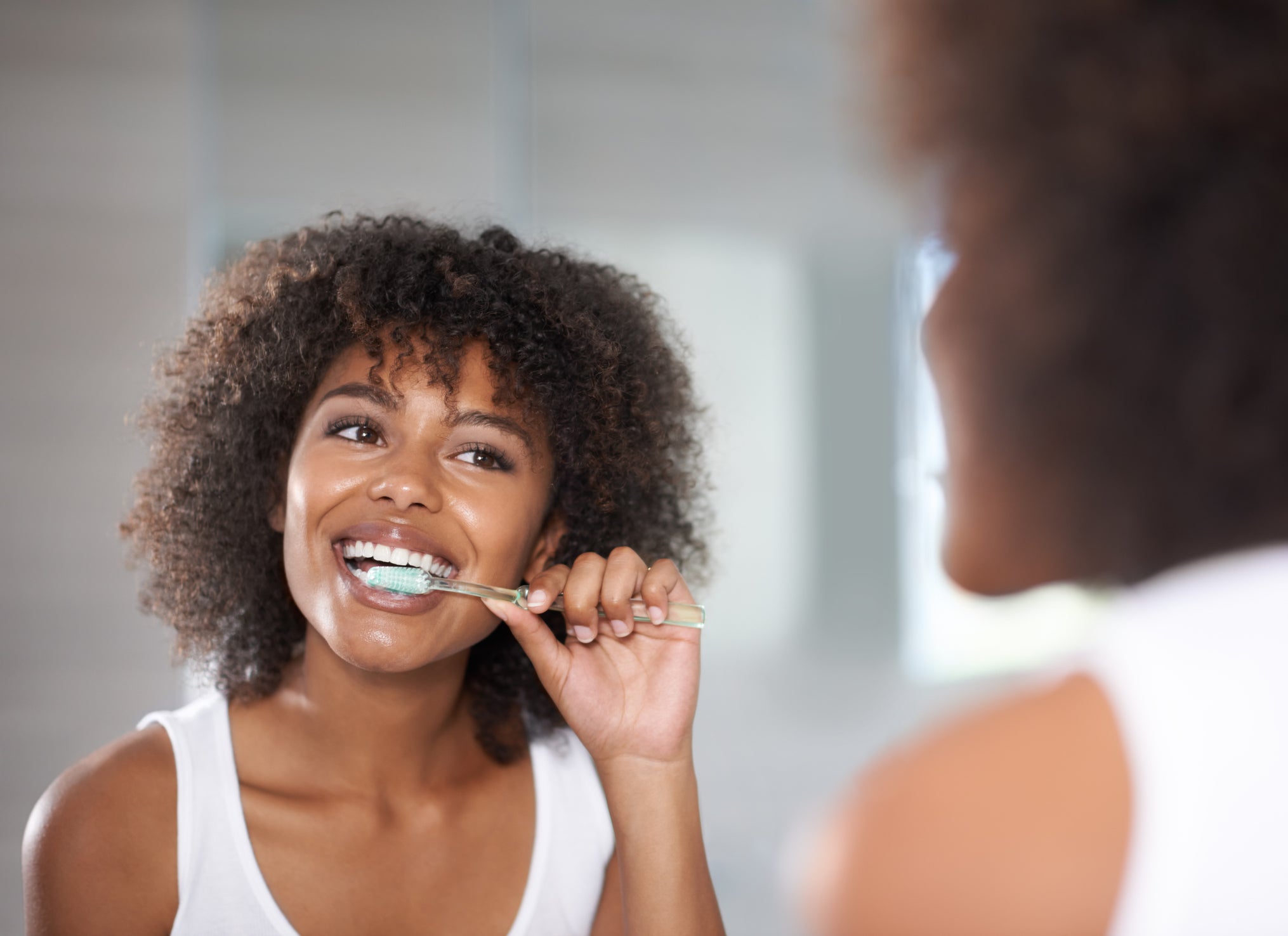
The holidays are upon us! What a whirlwind of a season, as we dash from one event to the next. Many of these events are full of rich foods and sweet treats, and there’s often no time to think about much beyond the next thing on the calendar. Whatever you do during the holidays, take care not to neglect your dental care. Here are some tips for keeping your teeth fresh, clean, and healthy, all the way into the new year!
- Make sure you’ve got healthy food in the mix. While you’re nibbling, munching, and feasting, intersperse healthy snacks with your decadent treats. Crunchy fruits and vegetables are great for your teeth, and so are cheese and whole grains.
- Take care not to overdo the sweets. This time of year, temptations are omnipresent! Popcorn balls, candy canes, and other sticky sweet treats are particularly bad for your teeth, but that doesn’t mean you have to forgo them entirely. Just stick to one dessert and then brush your teeth, to reduce your risk of tooth decay.
- Don’t use your teeth as tools. Cracking nuts, pulling out wine corks, opening packages, and all the other ways you can use your teeth instead of heading to the toolbox or kitchen drawer for a more suitable tool should be outlawed. The last thing you want to do this holiday season is end up with a broken tooth, so use your teeth only for eating and smiling.
- Drink plenty of water and keep your drinks light. Water is good for every system in your body, and it can help fill your stomach so that you don’t overeat. What’s more, it’s extremely helpful in washing away bacteria before plaque can form on your teeth. If you want to drink something other than water, steer clear of sugary beverages and choose drinks that are light-colored, as well. You’ll be doing your teeth a favor by keeping them clean and white.
- Stick to your routine. Brush your teeth at least twice a day, even if you’re on the go. Facilitate this by keeping a toothbrush and small tube of toothpaste handy at all times, in your purse, briefcase, or car, so that you can take care of your teeth even if you’re away from home.
- Don’t wait to fix any dental issues. Even if you’re out of town, don’t let a broken tooth or lost filling go without treatment. Call a local dental office for an emergency appointment; most dentists are prepared to accept visiting patients at this time of year.
- Schedule a cleaning for after the holiday season. You want to start the new year with a gorgeous smile and a healthy mouth, right? Go ahead and make your post-holiday checkup now, so that as soon as this hectic season draws to a close, you can get back into the swing of taking care of yourself.
When you’re ready to schedule your post-holiday dental check-up, choose the practice that was voted best dentist in NYC! At Park 56 Dental Group, we offer pediatric, prosthodontics, endodontics, oral surgery, Invisalign®, emergency, and sedation dentistry, all at the highest level of treatment. We serve the Midtown, Central Park, Upper East Side, Park Avenue, and all surrounding Manhattan and New York areas, with a patient-centered practice that has hours to fit your schedule. Schedule your complimentary consultation today by contacting us online or calling us at (212) 826-2322.
-
Why Your Gums Itch
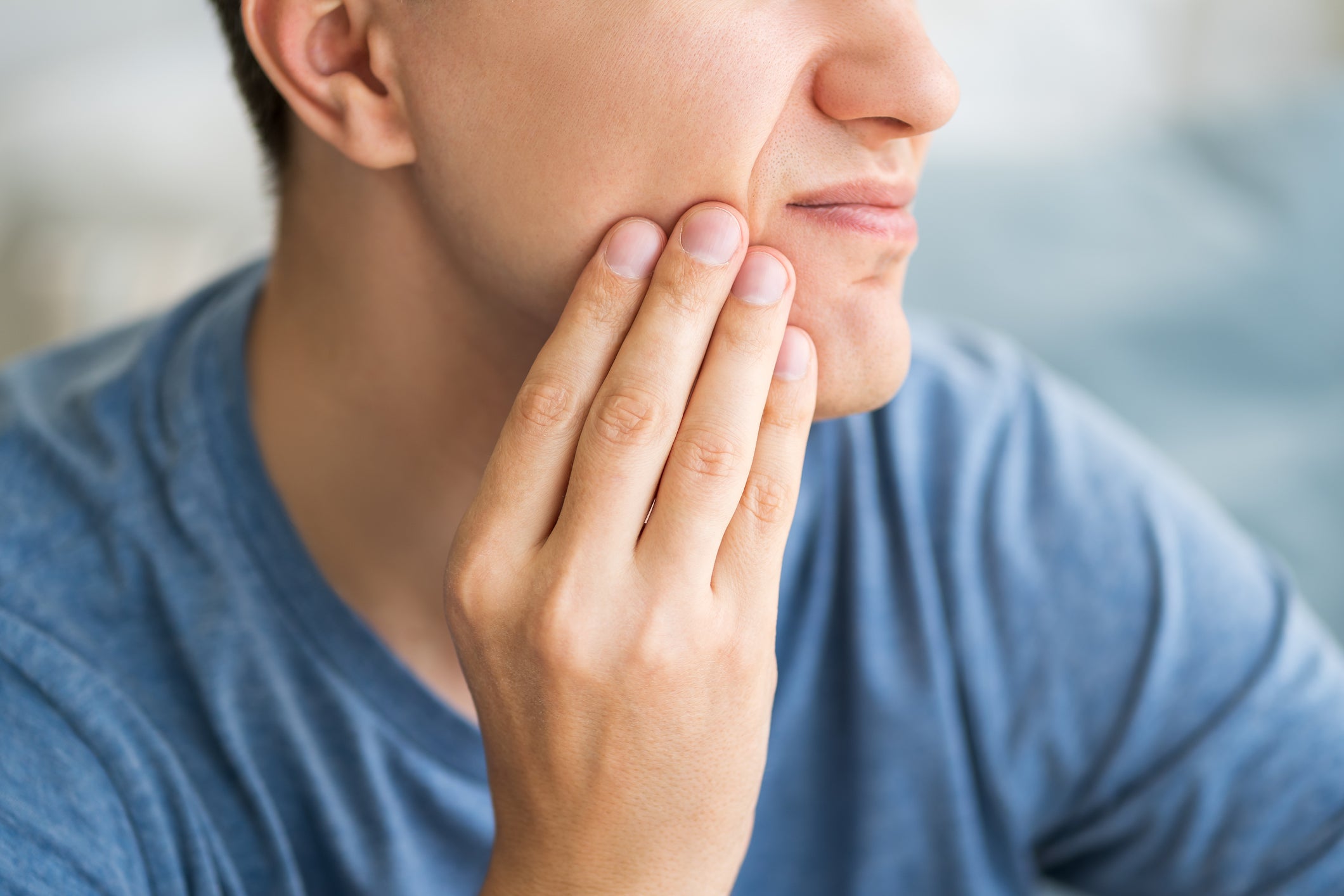
You know that feeling when your gums start to itch? The sensation can be annoying, and it might even make you a little self-conscious. But did you know that gum itchiness is actually a sign of something else going on in your mouth? There are a few different things that can cause your gums to itch. Read on to learn more about common causes of itchy gums and what you can do about it!
What Causes Gums to Itch and What Are Symptoms?
The most common cause of itchy gums is plaque build-up. Plaque is a sticky film of bacteria that forms on your teeth and gums. When plaque isn’t removed, it can harden into tartar. Tartar can irritate your gums and cause them to itch. Other causes of itchy gums include:
- Gum disease – Gum disease is an infection of the gum tissue. It can cause swelling, redness, and bleeding of the gums.
- Allergies – Allergies to food, medication, or other substances can cause itching and swelling of the gums.
- Dry mouth – Dry mouth can occur due to certain medications, medical conditions, or treatments. It can cause the gums to become irritated and itch.
Symptoms of itchy gums include:
- itching
- redness
- swelling
- tenderness
- bleeding
Are Itchy Gums a Warning Sign for a More Serious Issue?
Itchy gums are usually not a sign of a more serious condition. However, in rare cases, they may be a sign of gum disease or another oral health problem. If you have any concerns, see your dentist or oral healthcare provider.
What Are My Options for Treatment and Relief?
The best way to treat itchy gums is to remove the plaque and tartar with professional dental cleanings. Your dentist or oral healthcare provider can also recommend other treatments, such as:
- Fluoride mouth rinse – This can help prevent plaque build-up.
- Soft toothbrush – A soft-bristled toothbrush can be less irritating to your gums.
- Medications – If your itchy gums are caused by an allergy, your doctor may prescribe medication.
When Should I See a Doctor for My Itching Gums?
You should see a dentist or oral healthcare provider if your itchy gums are severe or don’t improve with home treatment. You should also see a healthcare provider if you have any other symptoms, such as:
- fever
- swelling of the face or lips
- difficulty breathing
How Can I Prevent Itchy Gums?
You can help prevent itchy gums by practicing good oral hygiene. This includes brushing your teeth twice a day, flossing daily, and using a fluoride mouth rinse. You should also see your dentist regularly for professional dental cleanings and check-ups.
How Can Park 56 Dental in NYC Help Me Treat My Itchy Gums?
If you have itchy gums, the team at Park 56 Dental in New York can help. We offer professional dental cleanings and a variety of other treatments to help relieve your symptoms. We also offer preventative care services to help you avoid itchy gums in the future. To learn more, contact us today or schedule an appointment online.
RECENT POSTS
categories
- Uncategorized
- Cosmetic Dentistry
- Veneers
- Healthier Teeth
- Teeth Whitening
- Dental Health
- Video
- Dental Emergencies
- Invisalign
- Dental Implants
- Root Canal
- Sedation Dentistry
- Infographic
- Dental Crowns and Bridges
- Dental Anxiety
- Gum Disease
- COVID-19
- Bad Breath
- New York Dentist
- Cut out sugar
- General Dentistry
- Oral Health
- Oral Cancer
- Dry Mouth
- Gum Health
- Toothache
- Dental Sealants
- Cavities



